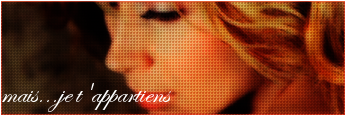Post by jjrparis on Aug 18, 2012 17:53:26 GMT -5
Hello all,
It's been quite some time since I've done some translations for the boards, but I've just received in the mail the MZ package from bookstar.fr, and I'm very pleased with the purchase. Similar to the Long Box from several years ago, it is a lovely presentation from beginning to end.
I still have plenty to say about this "project" (what it is and what it failed to be), but I'll deal with that another day. For now I wanted to pass on the actual interview to those of you who have not read it.
I was most excited for the book/interview, and I've not been disappointed. The book is actually divided into two parts, the first covering familiar territory (you'll learn that Lara has a Belgian father and Sicilian mother! ) and the second covering The Russian Years. I wanted to share with y'all this second part of the interview, and I'll paste here the first several pages. I'll continue tomorrow with more until I've covered it all. But where things 'end' here is a good stopping point.
) and the second covering The Russian Years. I wanted to share with y'all this second part of the interview, and I'll paste here the first several pages. I'll continue tomorrow with more until I've covered it all. But where things 'end' here is a good stopping point.
In a separate thread I'll cover my thoughts on what we learn from this, but until then, here is a translation of the of the MZ Interview.
Josh
__________
Mademoiselle Zhivago, the Interview
PART TWO: THE RUSSIAN FAIRYTALE (page 20, onward)
Though your artistic activity has remained dense, one can’t say that you’ve been very present in the media these last several years. To rediscover you via this new BOOK-CD-DVD would give the impression of a comeback of sorts …?
It’s true that for some time I have managed my media presence in a very different way than before. In fact, to be honest, I’ve not even really managed it, since I have nearly and voluntarily disappeared. It was necessary, and indispensable to my survival. I believe myself to be among artists who’ve been fiercely attacked by the media. “I took all that I could take,” as a friend once said to me. But I don’t really care to delve too deeply into all of that, and I take solace in reminding myself that those who endured the most are those that we love the most, since they’re still here. Look at Johnny Hallyday, Charles Aznavour, and Michel Sardou. I don’t consider myself to be at the end of my career, but it has been necessary to shift gears.
When, broadly speaking, did your life take on this different speed and direction?
It’s hard to say. Things happened progressively, and my life today stands as the sum total of a series of decisions that were made contentedly. I never woke up one morning with the firm idea that I should take refuge in anonymity. But things turned in 2005, when I met the man of my life. I was touring for the album 9, and he was the director of the Live. After a year of living together – he having already had children – he said to me, very simply, “The soul that I perceive in you is a soul that will never fully blossom until it has given life.” Irrefutable! He was right. It was time for me to stop being so concerned with myself, and to take the ultimate step toward motherhood.
This was during the same time period that you began to establish a career in the Countries to the East …
To be able to continue doing what I love, I, in effect, accepted invitations to sing my repertoire in Moscow, St. Petersburg, Kiev, Minsk, and in other Slavic cities over the course of a few weeks, per year. It was then that I discovered that, though I had made my career in French and in English, there was an interest in my music in Russia, and a number of other countries to the east. They adore French culture, and francophone music, and they knew Adagio, Bambina, Je suis malade, Je t’aime … They love these songs, and sing them in French! I was captivated by the welcome that I received there. I was invited to sing for a week’s engagement in concerts halls the equivalent of our Zeniths. Four to six thousand people would gather each night to hear my songs. When I’d arrive on stage, not yet having sung the first note, the crowd would already be on its feet. At the first chords, they would recognize each song. I had thought I was in a country where no one knew me, and yet I was being welcomed as in the glory days of my French career, where it had taken ten years and millions of albums sold to fill concert halls. And yet there, that’s what I was experiencing right away, every night of the week. An audience that, even foreign, knew the lyrics to my songs, in French! And when you consider the differences between our languages, it was truly a testament to their affection, and that blew me away. And all of this from the very start. I didn’t have to make the least effort to conquer this new public. I felt as though I had been waited for, expected. For artists given to feeling fragile and vulnerable, and yet at the same time wishing to be adored, you can’t hope for better. When I discovered this infatuated public, this treasure of people so attached to my music, then, I told myself that I had to remain engaged.
And all this while at the same time in France, 2006-2007, the music scene was shifting quite differently …
That’s an understatement. Music was in crisis, the mood of everything was changing. I began to feel myself a stranger in that world. I heard incredible things being said in the industry, such as, “Les chanteuses a voix (singers of voice), they’re over. We’ll no longer play music from women.” Such things said, as if taken straight from an extremist manual devoted to misogyny! Even soft-rock/easy-listening radio stations, with a majority-female listening base, were no longer playing my songs, or those of similar female artists, all because of a supposed need to strike off in some illusory, new direction. In short, in France, at that time, singers who sing – which is like saying bikers who bike – would have done better not to sing at all, as it was supposedly out of fashion. And this all seemed to have come about overnight. But this change, or supposed contempt for singers, it never really came from the public, or else I’d not have been able to sell out concert halls, or have known the magic of successful tours. And still today, I continue to have an audience with whom to share my music.
During this time, then, in the East, you found yourself discovering this new relationship with a new public that loved singers (who sing), and to whom you felt you might owe more than simply concerts …
To tell the truth, in the beginning I thought that this new public and I, we’d share a few concerts per year – Best Of concerts featuring hits and songs from new albums. I never imagined that there would be another step to this journey, that being the creation of an original album in Russia. I simply thought that they loved ‘The French Singer,’ and not that we’d create together an album that stood at the borders of myself and this new culture about which I knew so little.
Certainly understandable, though mastering new cultures is your strength, something that does not frighten you at all. Yet you were not alone – with ‘eyes closed’ as it were – as you stepped into this new chapter of your life. You were accompanied by someone ….
So we’re now in the spring of 2009. I was singing at the Operetta de Moscou, a hall comparable to the Olympia de Paris. That particular evening I had noticed a rather impressive gentleman sitting on the first row. His head shaved, his eyes intense. Extremely charismatic. Just in front of him, at the foot of the stage, was sitting a large floral arrangement, one of the loveliest I had ever seen. Really, it wasn’t just an arrangement – it was a garden of flowers planted in a massive, oval basket. The evening went on, the concert ended. And when I was getting ready to leave the stage, I saw this gentleman make a signal with the nod of his head, and immediately two people got up and brought this amazing floral display to my feet. The crowd was on its feet in applause, and yet at the moment when this mysterious spectator stood up to greet me, I felt the hall go silent. It was as if though a perfume of mystery was floating in the air, mixed with surprise and fascination. It was clear that the crowd recognized him. I could hear the murmuring. I understood that I had just been offered flowers by a very important person in this country. And thus Igor Krutoy made his entrance into my life.
And you didn’t recognize him?
I couldn’t have recognized him – I had never seen him before in my life! As I left the stage, I invited him to my dressing room. And there, as if the garden of flowers he had offered me were not enough, I found even more sitting at the door. He comes in, and is accompanied by an interpreter, who says to me, “Mr. Krutoy has taken the liberty of brightening up your dressing room with a few flowers. He would ask that you accept the invitation of joining him this evening for dinner at one of Moscow’s loveliest restaurants.”
It seems as though his seduction techniques are worthy of a Russian Fairytale …
Yes, indeed. He’s an elegant man, very much in sync with the customs of his culture, a culture that can to us, as Westerners, seem a bit excessive, or strange. But truly, these are simply ways of making one feel accepted and welcome. That said, I politely refused the invitation since I was to sing the next day, and normally I do not speak in between concerts. I suggested, then, that we share tea together the afternoon before my departure, which we did. It was then that he presented me with a CD that contained a dozen of his compositions. There, at the Ritz Carlton, he had me listen to them. The lyricism of his works, sung by the baritone Dmitri Hvorostovsky, spoke to my soul. My spirit could already imagine the stories that I would be able to write for the music that Igor would create for me. We scheduled another meeting during my next trip, and it was then, at his apartment in Moscow, that we truly delved into the subject …
Once at his home, what sort of character did you discover?
A courteous, welcoming man. There was a table before me, garnished with exotic fruits and extraordinary teas, and a beautiful bouquet of flowers was waiting for me at the place he invited me to sit. Very quickly, our conversation turned to music. Through his interpreter, he said to me, “I believe you to be the voice that I’ve been searching for. We will do great things together. Will you allow me to be the composer of your next album?” His intentions, then, were to conceive and produce my next album in Russia. We then sat at his table for a long time, while I listened to him tell me of all of the concerts that I had given in Moscow, over the course of the past three years. He was present at every last one. He proceeded forth with commentaries and critiques, extremely detailed and constructive, concerning me: the manner in which I interpret my songs, those that I should sing more than others, what I wear, my stage presence … everything, and in the greatest degree of detail! I came to realize that this man had been observing me for years, and that he had been imagining a very concrete project with me and it was on that night, after years of studying me, that he had decided to step out of the shadows.
MORE TO FOLLOW!
It's been quite some time since I've done some translations for the boards, but I've just received in the mail the MZ package from bookstar.fr, and I'm very pleased with the purchase. Similar to the Long Box from several years ago, it is a lovely presentation from beginning to end.
I still have plenty to say about this "project" (what it is and what it failed to be), but I'll deal with that another day. For now I wanted to pass on the actual interview to those of you who have not read it.
I was most excited for the book/interview, and I've not been disappointed. The book is actually divided into two parts, the first covering familiar territory (you'll learn that Lara has a Belgian father and Sicilian mother!
 ) and the second covering The Russian Years. I wanted to share with y'all this second part of the interview, and I'll paste here the first several pages. I'll continue tomorrow with more until I've covered it all. But where things 'end' here is a good stopping point.
) and the second covering The Russian Years. I wanted to share with y'all this second part of the interview, and I'll paste here the first several pages. I'll continue tomorrow with more until I've covered it all. But where things 'end' here is a good stopping point. In a separate thread I'll cover my thoughts on what we learn from this, but until then, here is a translation of the of the MZ Interview.
Josh
__________
Mademoiselle Zhivago, the Interview
PART TWO: THE RUSSIAN FAIRYTALE (page 20, onward)
Though your artistic activity has remained dense, one can’t say that you’ve been very present in the media these last several years. To rediscover you via this new BOOK-CD-DVD would give the impression of a comeback of sorts …?
It’s true that for some time I have managed my media presence in a very different way than before. In fact, to be honest, I’ve not even really managed it, since I have nearly and voluntarily disappeared. It was necessary, and indispensable to my survival. I believe myself to be among artists who’ve been fiercely attacked by the media. “I took all that I could take,” as a friend once said to me. But I don’t really care to delve too deeply into all of that, and I take solace in reminding myself that those who endured the most are those that we love the most, since they’re still here. Look at Johnny Hallyday, Charles Aznavour, and Michel Sardou. I don’t consider myself to be at the end of my career, but it has been necessary to shift gears.
When, broadly speaking, did your life take on this different speed and direction?
It’s hard to say. Things happened progressively, and my life today stands as the sum total of a series of decisions that were made contentedly. I never woke up one morning with the firm idea that I should take refuge in anonymity. But things turned in 2005, when I met the man of my life. I was touring for the album 9, and he was the director of the Live. After a year of living together – he having already had children – he said to me, very simply, “The soul that I perceive in you is a soul that will never fully blossom until it has given life.” Irrefutable! He was right. It was time for me to stop being so concerned with myself, and to take the ultimate step toward motherhood.
This was during the same time period that you began to establish a career in the Countries to the East …
To be able to continue doing what I love, I, in effect, accepted invitations to sing my repertoire in Moscow, St. Petersburg, Kiev, Minsk, and in other Slavic cities over the course of a few weeks, per year. It was then that I discovered that, though I had made my career in French and in English, there was an interest in my music in Russia, and a number of other countries to the east. They adore French culture, and francophone music, and they knew Adagio, Bambina, Je suis malade, Je t’aime … They love these songs, and sing them in French! I was captivated by the welcome that I received there. I was invited to sing for a week’s engagement in concerts halls the equivalent of our Zeniths. Four to six thousand people would gather each night to hear my songs. When I’d arrive on stage, not yet having sung the first note, the crowd would already be on its feet. At the first chords, they would recognize each song. I had thought I was in a country where no one knew me, and yet I was being welcomed as in the glory days of my French career, where it had taken ten years and millions of albums sold to fill concert halls. And yet there, that’s what I was experiencing right away, every night of the week. An audience that, even foreign, knew the lyrics to my songs, in French! And when you consider the differences between our languages, it was truly a testament to their affection, and that blew me away. And all of this from the very start. I didn’t have to make the least effort to conquer this new public. I felt as though I had been waited for, expected. For artists given to feeling fragile and vulnerable, and yet at the same time wishing to be adored, you can’t hope for better. When I discovered this infatuated public, this treasure of people so attached to my music, then, I told myself that I had to remain engaged.
And all this while at the same time in France, 2006-2007, the music scene was shifting quite differently …
That’s an understatement. Music was in crisis, the mood of everything was changing. I began to feel myself a stranger in that world. I heard incredible things being said in the industry, such as, “Les chanteuses a voix (singers of voice), they’re over. We’ll no longer play music from women.” Such things said, as if taken straight from an extremist manual devoted to misogyny! Even soft-rock/easy-listening radio stations, with a majority-female listening base, were no longer playing my songs, or those of similar female artists, all because of a supposed need to strike off in some illusory, new direction. In short, in France, at that time, singers who sing – which is like saying bikers who bike – would have done better not to sing at all, as it was supposedly out of fashion. And this all seemed to have come about overnight. But this change, or supposed contempt for singers, it never really came from the public, or else I’d not have been able to sell out concert halls, or have known the magic of successful tours. And still today, I continue to have an audience with whom to share my music.
During this time, then, in the East, you found yourself discovering this new relationship with a new public that loved singers (who sing), and to whom you felt you might owe more than simply concerts …
To tell the truth, in the beginning I thought that this new public and I, we’d share a few concerts per year – Best Of concerts featuring hits and songs from new albums. I never imagined that there would be another step to this journey, that being the creation of an original album in Russia. I simply thought that they loved ‘The French Singer,’ and not that we’d create together an album that stood at the borders of myself and this new culture about which I knew so little.
Certainly understandable, though mastering new cultures is your strength, something that does not frighten you at all. Yet you were not alone – with ‘eyes closed’ as it were – as you stepped into this new chapter of your life. You were accompanied by someone ….
So we’re now in the spring of 2009. I was singing at the Operetta de Moscou, a hall comparable to the Olympia de Paris. That particular evening I had noticed a rather impressive gentleman sitting on the first row. His head shaved, his eyes intense. Extremely charismatic. Just in front of him, at the foot of the stage, was sitting a large floral arrangement, one of the loveliest I had ever seen. Really, it wasn’t just an arrangement – it was a garden of flowers planted in a massive, oval basket. The evening went on, the concert ended. And when I was getting ready to leave the stage, I saw this gentleman make a signal with the nod of his head, and immediately two people got up and brought this amazing floral display to my feet. The crowd was on its feet in applause, and yet at the moment when this mysterious spectator stood up to greet me, I felt the hall go silent. It was as if though a perfume of mystery was floating in the air, mixed with surprise and fascination. It was clear that the crowd recognized him. I could hear the murmuring. I understood that I had just been offered flowers by a very important person in this country. And thus Igor Krutoy made his entrance into my life.
And you didn’t recognize him?
I couldn’t have recognized him – I had never seen him before in my life! As I left the stage, I invited him to my dressing room. And there, as if the garden of flowers he had offered me were not enough, I found even more sitting at the door. He comes in, and is accompanied by an interpreter, who says to me, “Mr. Krutoy has taken the liberty of brightening up your dressing room with a few flowers. He would ask that you accept the invitation of joining him this evening for dinner at one of Moscow’s loveliest restaurants.”
It seems as though his seduction techniques are worthy of a Russian Fairytale …
Yes, indeed. He’s an elegant man, very much in sync with the customs of his culture, a culture that can to us, as Westerners, seem a bit excessive, or strange. But truly, these are simply ways of making one feel accepted and welcome. That said, I politely refused the invitation since I was to sing the next day, and normally I do not speak in between concerts. I suggested, then, that we share tea together the afternoon before my departure, which we did. It was then that he presented me with a CD that contained a dozen of his compositions. There, at the Ritz Carlton, he had me listen to them. The lyricism of his works, sung by the baritone Dmitri Hvorostovsky, spoke to my soul. My spirit could already imagine the stories that I would be able to write for the music that Igor would create for me. We scheduled another meeting during my next trip, and it was then, at his apartment in Moscow, that we truly delved into the subject …
Once at his home, what sort of character did you discover?
A courteous, welcoming man. There was a table before me, garnished with exotic fruits and extraordinary teas, and a beautiful bouquet of flowers was waiting for me at the place he invited me to sit. Very quickly, our conversation turned to music. Through his interpreter, he said to me, “I believe you to be the voice that I’ve been searching for. We will do great things together. Will you allow me to be the composer of your next album?” His intentions, then, were to conceive and produce my next album in Russia. We then sat at his table for a long time, while I listened to him tell me of all of the concerts that I had given in Moscow, over the course of the past three years. He was present at every last one. He proceeded forth with commentaries and critiques, extremely detailed and constructive, concerning me: the manner in which I interpret my songs, those that I should sing more than others, what I wear, my stage presence … everything, and in the greatest degree of detail! I came to realize that this man had been observing me for years, and that he had been imagining a very concrete project with me and it was on that night, after years of studying me, that he had decided to step out of the shadows.
MORE TO FOLLOW!






